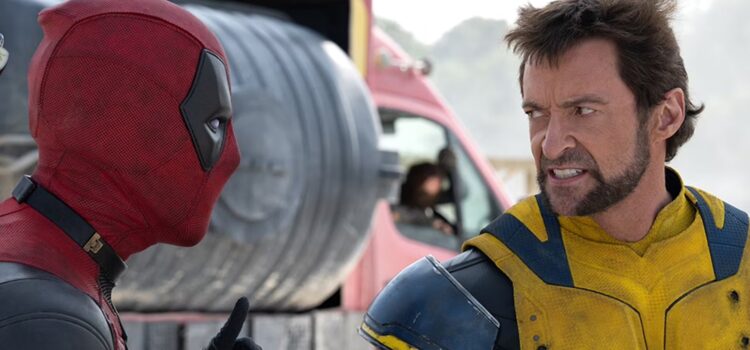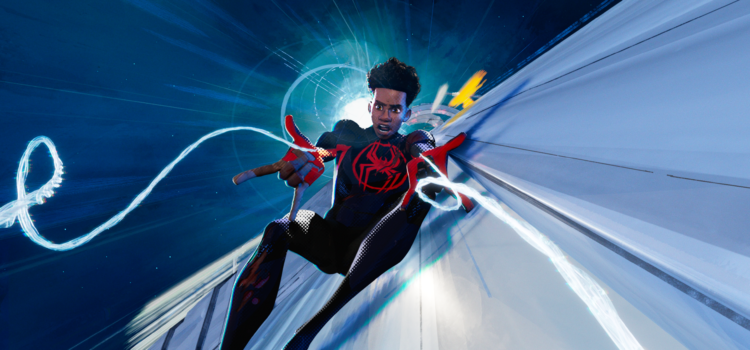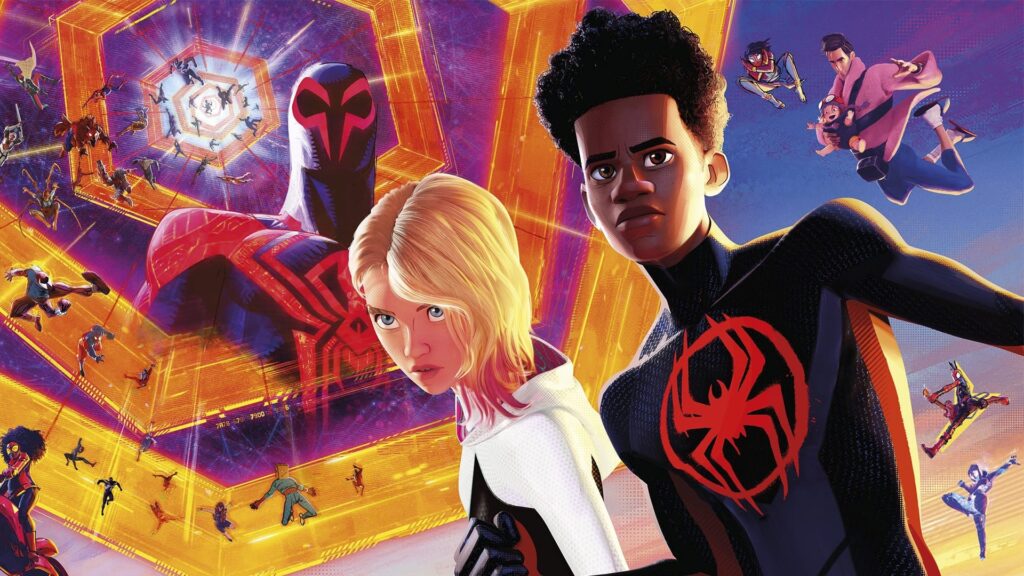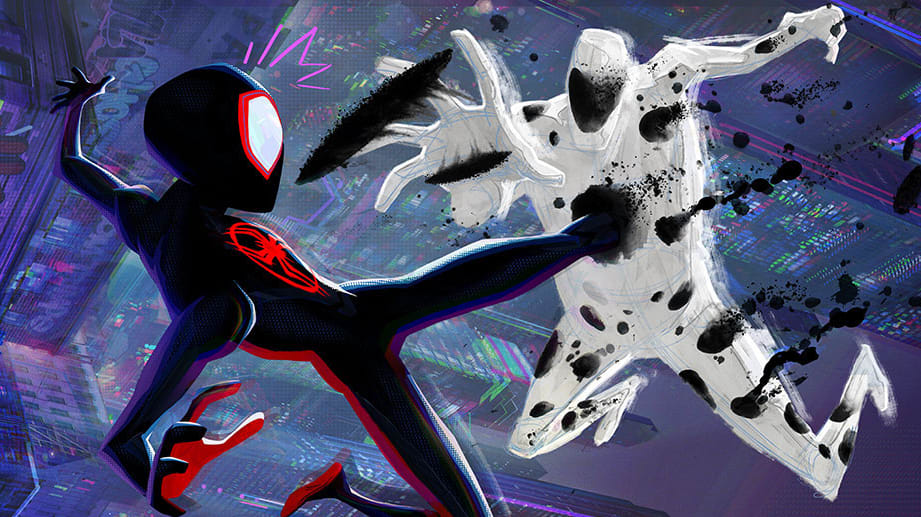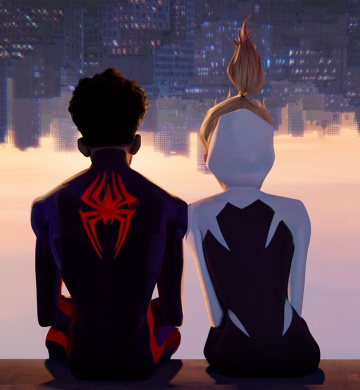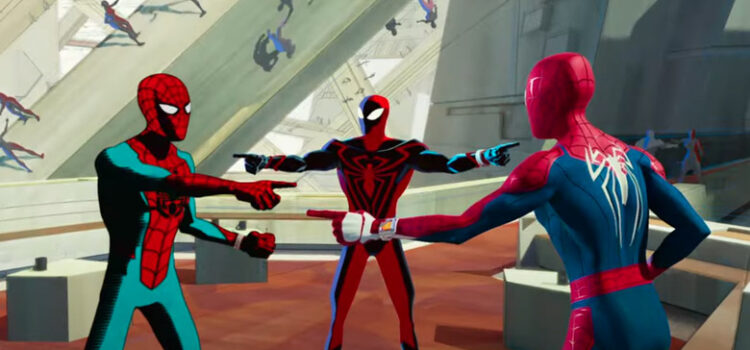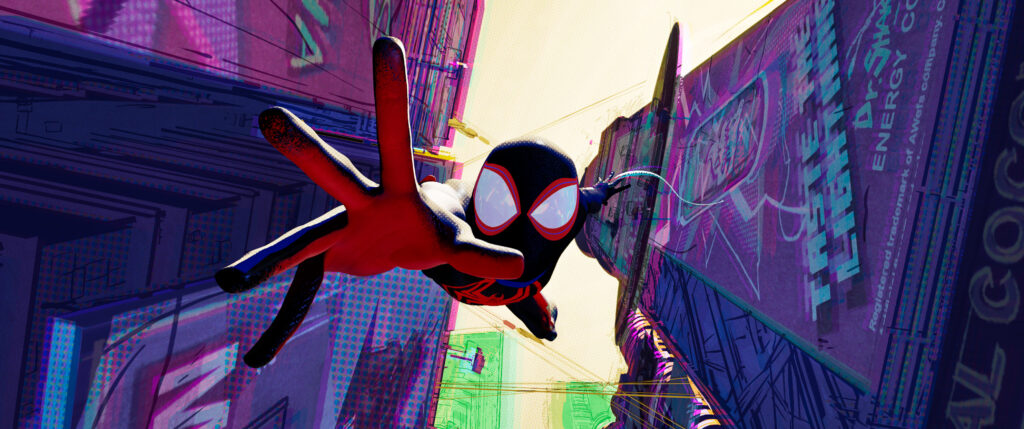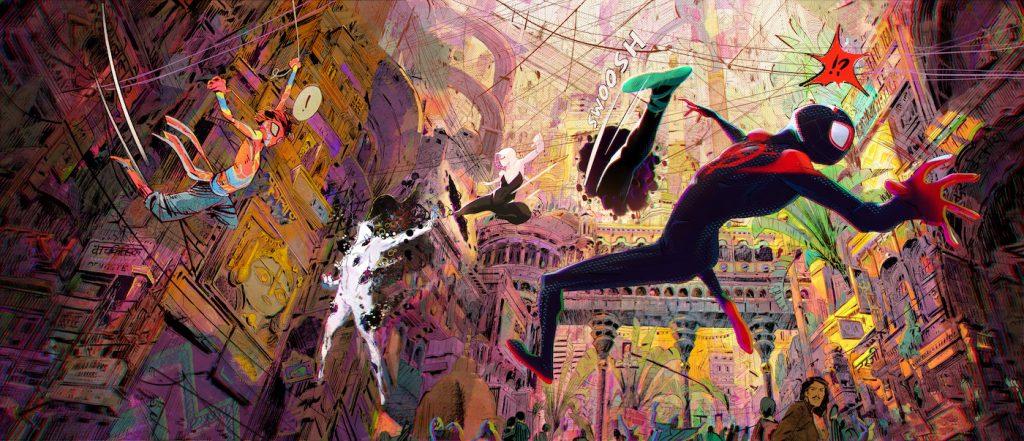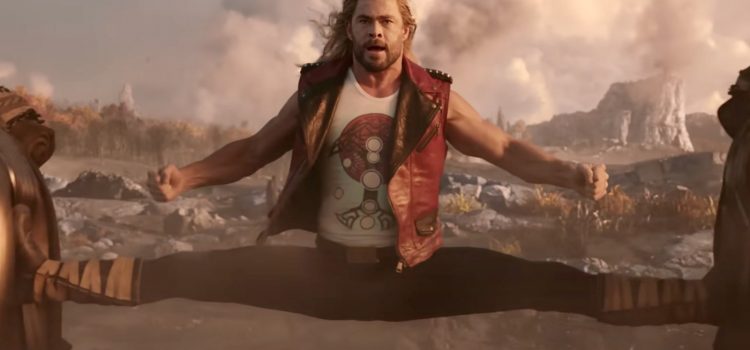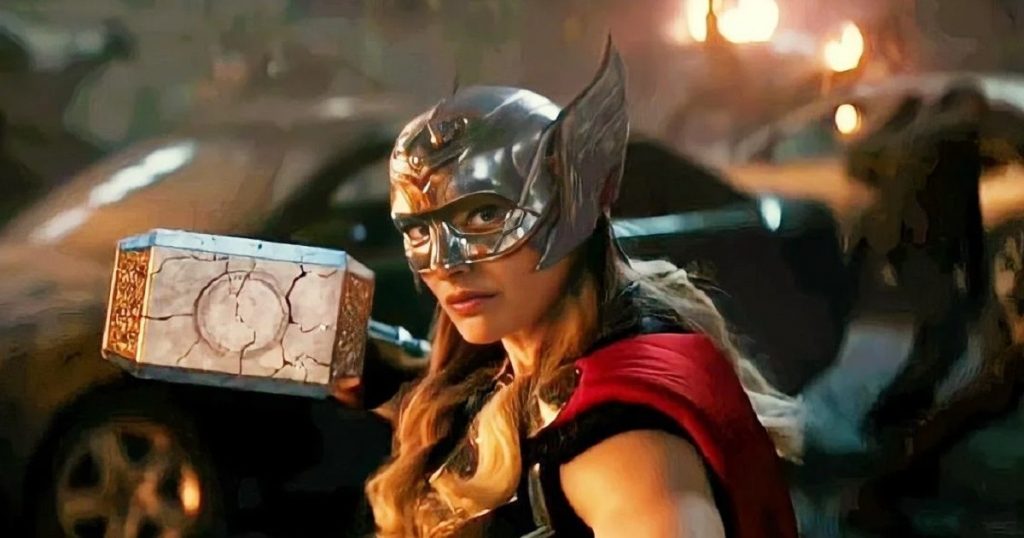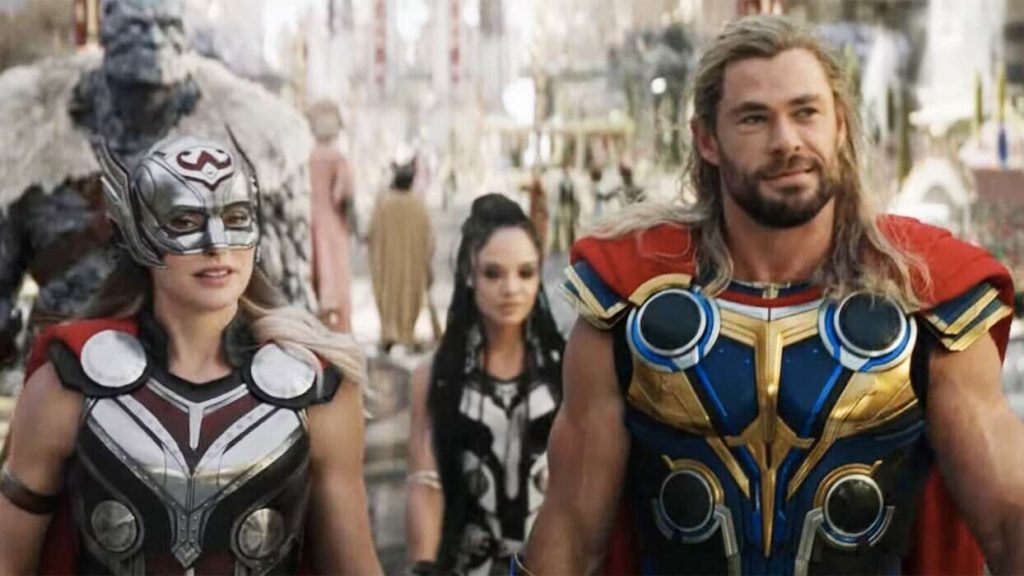By Lynn Venhaus
Propelled by personality and pizzazz, the very funny, very bloody and very meta “Deadpool & Wolverine” is an epic throwdown teaming two very different superheroes played by a pair of dynamic superstars.
Now a civilian, a listless Wade Wilson thinks his days as a morally flexible mercenary are behind him. But when his ‘homeworld’ faces an existential threat, he must suit up again as Deadpool and join an even more reluctant Wolverine to save his loved ones.
Full of Easter Eggs for comic book and superhero fans, another pleasant surprise is the clever casting, and a memorable soundtrack mix of sardonic needle drops. You likely have never heard Madonna’s “Like a Prayer” or The Goo-Goo Dolls’ “Iris” this way.
The plot, which is muddled and messy multiverse mayhem, is likely immaterial. One setting is The Void, apparently mentioned in Disney Plus’ “Loki” television series, and another is the often-used Time Variance Authority (TVA), a bureaucratic agency that monitors timelines in the multiverse.
Since appearing in Marvel Comics in 1986 and in “Loki” in 2021-23, the TVA regulates reality and swiftly acts on temporal anomalies. I don’t understand it either. Are we in the Matrix or out?
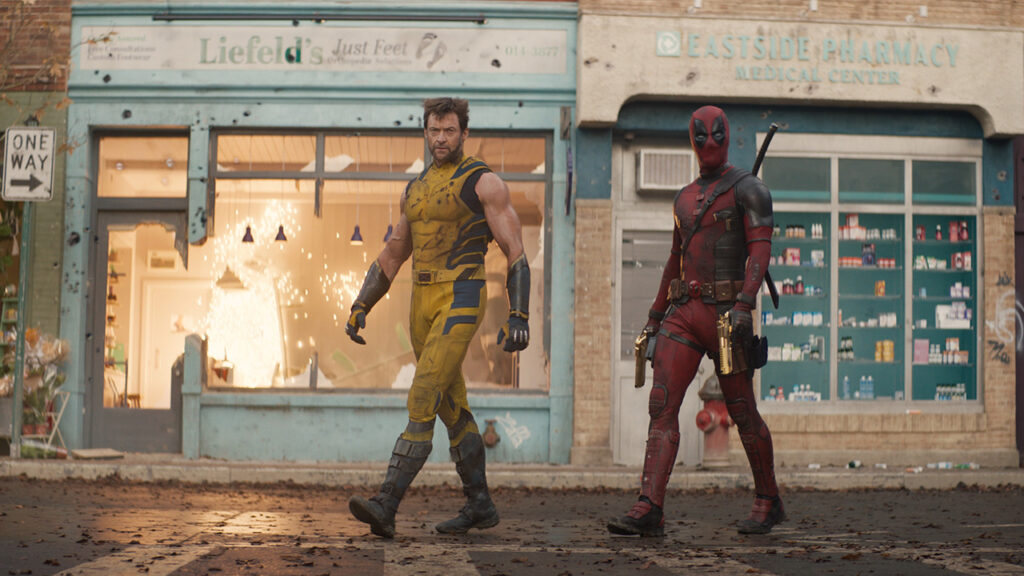
Time rips, worlds must be saved so that these anti-heroes can matter, the very tall and muscular pair bicker like they’re in a buddy cop movie, the fight scenes are mind-numbing repetitive, and the saucy innuendo and no-filter in-jokes comprise a hefty chunk of the 2 hour, 7-minute runtime.
Don’t think too hard and you can follow up with the MCU backstories later.
Director and co-writer Shawn Levy and his four credited co-writers Rhett Reese, Paul Wernick, star Ryan Reynolds and Zeb Wells have fun mocking the MCU – and new parent company Disney.
Reese and Wernick wrote the first two “Deadpool” movies (2016 and 2018) and Levy worked with Reynolds on the video game satire “Free Guy” in 2021 and the time travel family film “The Adam Project” in 2022. He also directed Jackman in “Real Steel” in 2011.
The fan service-focused writers aim for the audience to enjoy the comedic gifts of glib Reynolds, all in for the third time as Deadpool, aka “The Merc with the Mouth,” doing his signature fourth wall breaking and snappy repartee peppered with self-aware pop culture references.
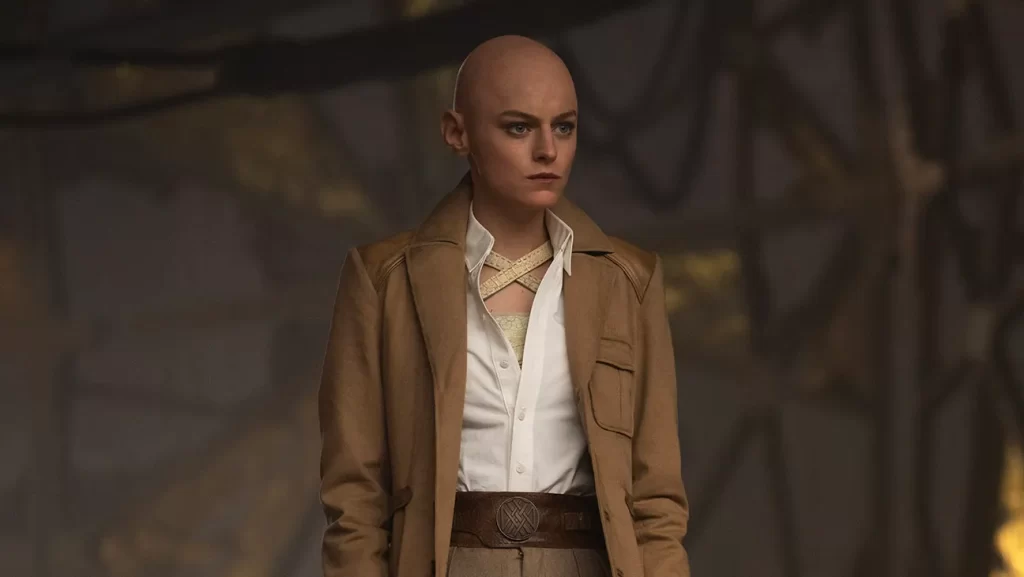
This film is Wilson’s timeline, and I think we’re part of the portal that has discovered a grumpy version of Hugh Jackman’s Wolverine, the X-Men legend that he’s played 10 times on screen, and yes, was killed in 2017’s “Logan.”
If you haven’t seen a recent Marvel movie, they play loose with the multiverses, so really anything can happen – and does, as logic doesn’t matter.
Capitalizing on their viral social media faux feud, Reynolds and Jackman follow through with their odd-couple chemistry and amusing one-upmanship.
The charismatic duo, in frenemies mode, must use their specific sets of skills to thwart the foe, Cassandra Nova, Charles Xavier’s evil twin sister who benefits from telekinesis and telepathy.
Xavier is none other than the beloved Professor X, creator of the X-Men, and founder of Xavier’s School for Gifted Youngsters. Logan taught a new generation of mutants there.
A bald, glowering Emma Corrin, best known for portraying a young Lady Diana Spencer on “The Crown,” is an unpredictable and dull villain that appears stuck in a scorched earth dystopian scenario reminiscent of another popular sci-fi fantasy franchise.
The heavily banged-up, scraggly heroes are joined by faces both familiar and fresh, and while mentioning cameos would be a frowned-upon spoiler, those actors really perk up the proceedings.
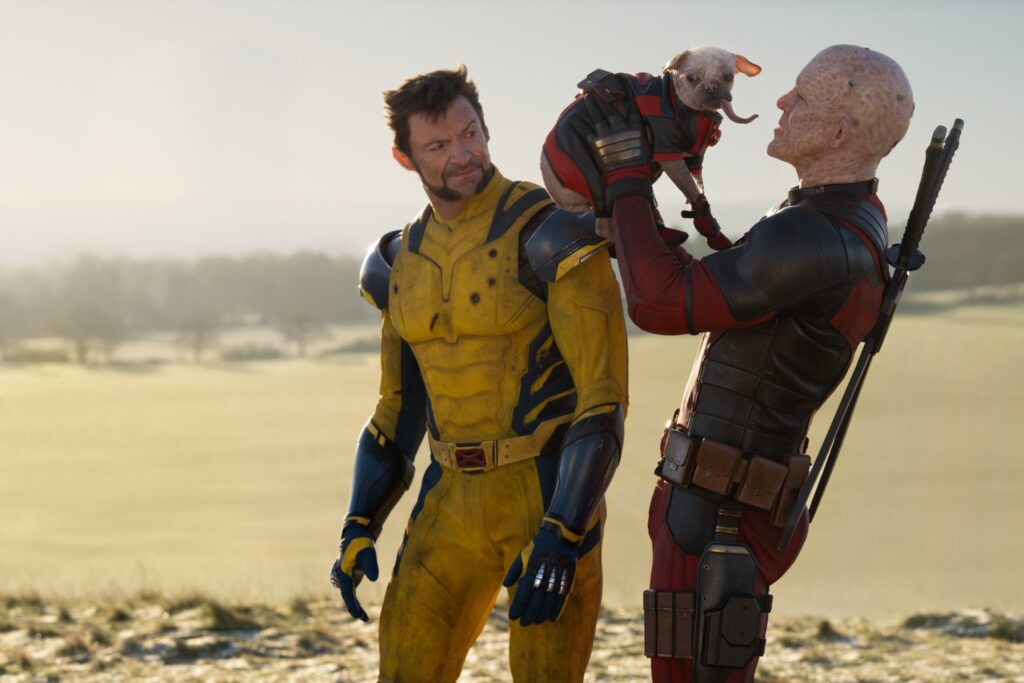
Supporting characters include Emmy-Award winner Matthew Macfadyen (Tom on “Succession”) as a mysterious TVA manager-enforcer Mr. Paradox, Rob Delaney as Wade’s cheerful co-worker Peter who is eager to help save the world, Morena Baccarin returns as Wade’s sweet ex-girlfriend Vanessa, and Leslie Uggams is Wade’s cantankerous blind roommate Al.
With a torrent of F-bombs unleashed throughout – more than a 100, this is the first Disney-sanctioned Marvel movie to be rated R, and it’s also because of its gory slice-and-dice fights and raunchy, foul-mouthed humor.
If you’ve seen the previous two self-aware “Deadpool” movies, it follows that subversive-found family template.
Deadpool, a comic book figure created by Rob Leifeld and Fabian Nicieza, was a soldier dying of cancer when offered a lifeline by a shadowy agency – experimented on, which left him horribly disfigured but able to rapidly heal. He first showed up in the X-Men Origins movie “Wolverine” in 2009, and the bromance began.
This is also the first time Wolverine is seen in his comic book yellow-and-blue suit in 24 years of live-action films, and costume designers Graham Churchyard and Mayes C. Rubeo nail it.
The versatile Jackman, who is at home on both a Broadway stage and stabbing people with his mutant’s retractable adamantium claws, is in prime physical condition, and can capably handle his gruff character’s brute strength and animalistic rage, not to mention rock the mutton-chop sideburns.

Wolverine, aka James “Logan” Howlett, has been part of the X-Men, X-Force, Alpha Flight, the Fantastic Four, and the Avengers. Depicted as a loner, he’s known for a long lifespan and therefore, many life experiences. Jackman has played the character since 2000.
We reviewers are contractually obligated not to give too much away in terms of spoilers, character development, cameos and major plot points, so this must suffice.
This film is going to be a huge box office champ, restoring the MCU’s luster after last year’s flops “Ant-Man vs. The Wasp: Quantumania” and “The Marvels,” so does it matter if it’s really a rough patchwork quilt, enlivened by zippy quips and two pros giving fans what they want?
I doubt that anyone is going to remember this plot, or comprehend it, once people get home. But they will recall laughing a lot – and a very sentimental homage to the Fox era of “X-Men” films over the closing credits.
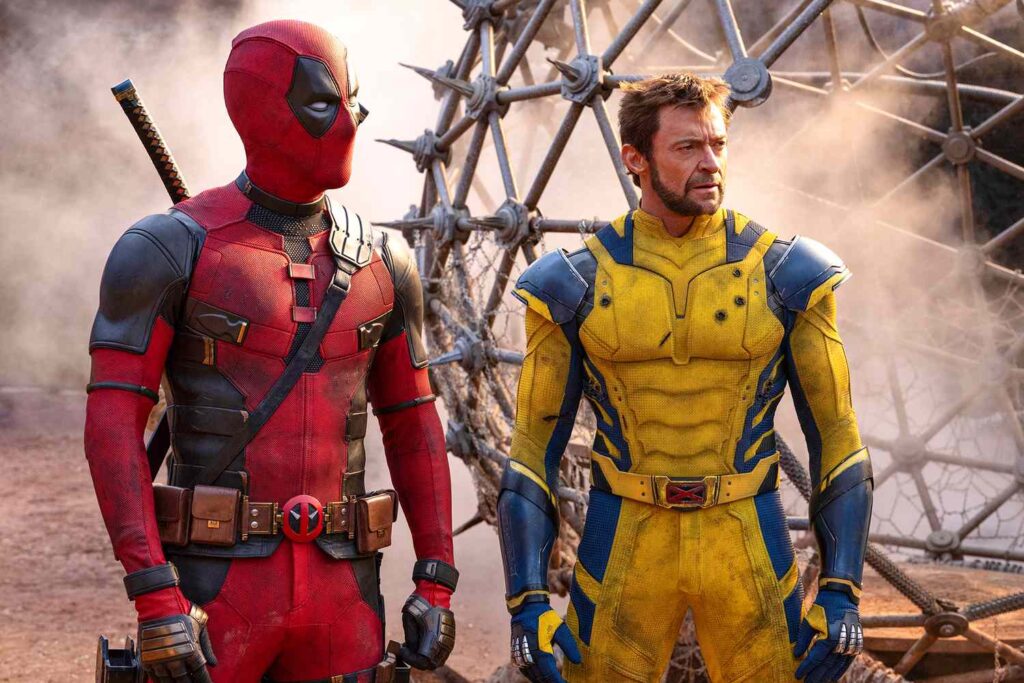
“Deadpool & Wolverine” is a 2024 action-comedy-sci-fi movie directed by Shawn Levy and starring Ryan Reynolds, Hugh Jackman, Emma Corwin, Matthew MacFadyen, Morena Baccarin, Rob Delaney, and Leslie Uggams. It is rated R for strong bloody violence and language throughout, gore and sexual references and runs 2 hours, 7 minutes. It opened in theatres July 26. Lynn’s Grade: B-.

Lynn (Zipfel) Venhaus has had a continuous byline in St. Louis metro region publications since 1978. She writes features and news for Belleville News-Democrat and contributes to St. Louis magazine and other publications.
She is a Rotten Tomatoes-approved film critic, currently reviews films for Webster-Kirkwood Times and KTRS Radio, covers entertainment for PopLifeSTL.com and co-hosts podcast PopLifeSTL.com…Presents.
She is a member of Critics Choice Association, where she serves on the women’s and marketing committees; Alliance of Women Film Journalists; and on the board of the St. Louis Film Critics Association. She is a founding and board member of the St. Louis Theater Circle.
She is retired from teaching journalism/media as an adjunct college instructor.

